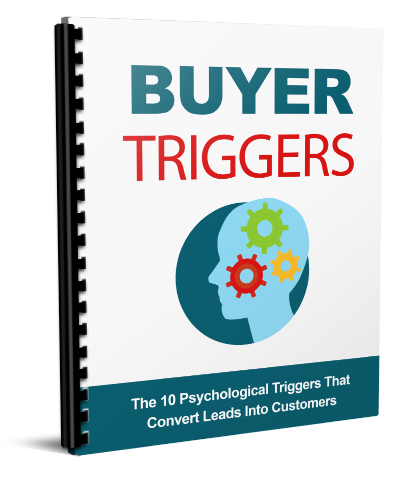Launching a new website can be nerve-wracking enough. After what feels like eons of work building the perfect website for your business, you might feel a little anxious once your business is launched and your website is live.
You may have done all of the SEO steps you could think of, and now you just have to wait for business to start booming. But wait… when you do a Google search, your website doesn’t show up on the first page, or the second! Is something wrong?
The answer is: Not necessarily. There are many reasons why your website might not show up on Google right away, and all of them can be fixed without starting from scratch.
The New Kid on the Block
Brand new websites often don’t appear on Google right away. The process is known as “indexing”, and sometimes it takes a month or so for a search engine to update to include the new sites that are added all the time. You may also lack inbound links just yet, which can also delay the process.
The good news is that you can help Google out with this process. First, pull up your search screen, and type in:
site:yourwebsite.com
Does anything come up? Next, try searching for site:yourwebsite.com/a-page-you-want-people-to-find (Please note: you’re going to use your actual web address and the actual page name. These are just examples!)
There are two things to do here. The first and fastest is to either create an account or log in to Google Webmaster Tools. Here, you’ll be able to register your site with the Google Search Console, all with very little stress.
Next, it is possible your website has “no index” tags lurking somewhere in the background.
These tags are little pieces of HTML code that hide your site from search engines. This may sound absolutely counter-productive, but oftentimes, these tags are a good idea while your site is in development. There’s also a checkbox in WordPress that can be accidentally pressed.
Accidents happen: don’t get too stressed, just go back to your development screen and see if you can find anything that sticks out. If not, or if you had your site created by a professional developer, ask them to take a look at the index tags.
Keyword Conundrum
Alas, keywords might be something that is preventing your website from getting the attention it deserves.
As we’ve discussed before, the keyword market is highly competitive, and banking on the most popular keywords might not get you the attention you need, especially if your site is new. Bigger, more popular, more established users of that keyword will show up first on Google searches. There are still a few things you can do to give the new guy a shot!
First, consider long-tail keywords. True, they have lower search volume, but they’re less competitive, and those who use long-tail keywords are more likely to make a purchase immediately. That type of user experience can drive up your Google ranking, too, but we’ll talk about that in a second.
Let’s say you have a very specialized business: perhaps you sell sports-related gear for pets. “Dog Shirt” is going to be a very popular keyword that the big guys will already have on deck. “LA Lakers jersey for dog,” on the other hand, might have less competition, and will lead the searcher straight to your site.
Useful Tools for your Keyword Research
Take advantage of the tools that are available, too. Keyword Tool, ahrefs, Google Keyword Planner, and more are all online tools that can review your keyword usage, and what it’s really doing for your site.
Investigate some of the tools at your disposal, as they can help you plan a keyword strategy that will actually get customers to notice you.
As mentioned above, Google ranks sites based on user experience as well as search intent. If you’re getting quick conversions with long-tail keywords, enjoy it. This will improve your Google rank!
You can also double-check a few things on your side to make sure the user experience is positive, including:
- Making sure your site loads quickly
- Using quality content
- Including images or videos to prevent the “wall of text” phenomenon
- Ensuring it’s easy to navigate your site
- Adding keywords in a variety of places, including headings, page titles, and even image file names
Google Jail
It’s also possible that you may have inadvertently done something that has resulted in your site being removed from Google. There are three ways in which Google can remove your site:
- Deindexed- this means you’ve been completely removed and banned. Serious violations can cause this.
- Penalized- this means that your page is still out there, but it’s impossible to find the pages through direct searches.
- Sandboxed- this means that you’ve been put in sort of a “time out.” You’re not getting the traffic you ought to, but you definitely haven’t been blocked.
Each of these scenarios will require some work within the Google Search Console to determine what happened and how to fix it. In some cases, the other steps, including indexing and cleaning up keywords, will fix the issue.
Checking Further…
As business owners, we all want to be the number one website on a Google search, so when our new site gets buried on the third or fourth page, it can feel like a reason to panic. The good news is that there are always a few simple things you can do to make sure your page makes the eventual climb to Google stardom.
Double-check the indexing status, and be sure to check the Google Search Console for any unintended blockages. Furthermore, give your content and site a good once-over (perhaps several once-overs!) to ensure the keywords you use aren’t getting lost in a sea of long-established, major competitors.
Also check that your site loads quickly, that the content is informative, educational, and entertaining, and that there aren’t any spots in which a customer could become lost and just give up!
Keep up all of your marketing efforts outside of your site, as well, and with time, the excellent user experience you provide will help you land the front page of Google!









